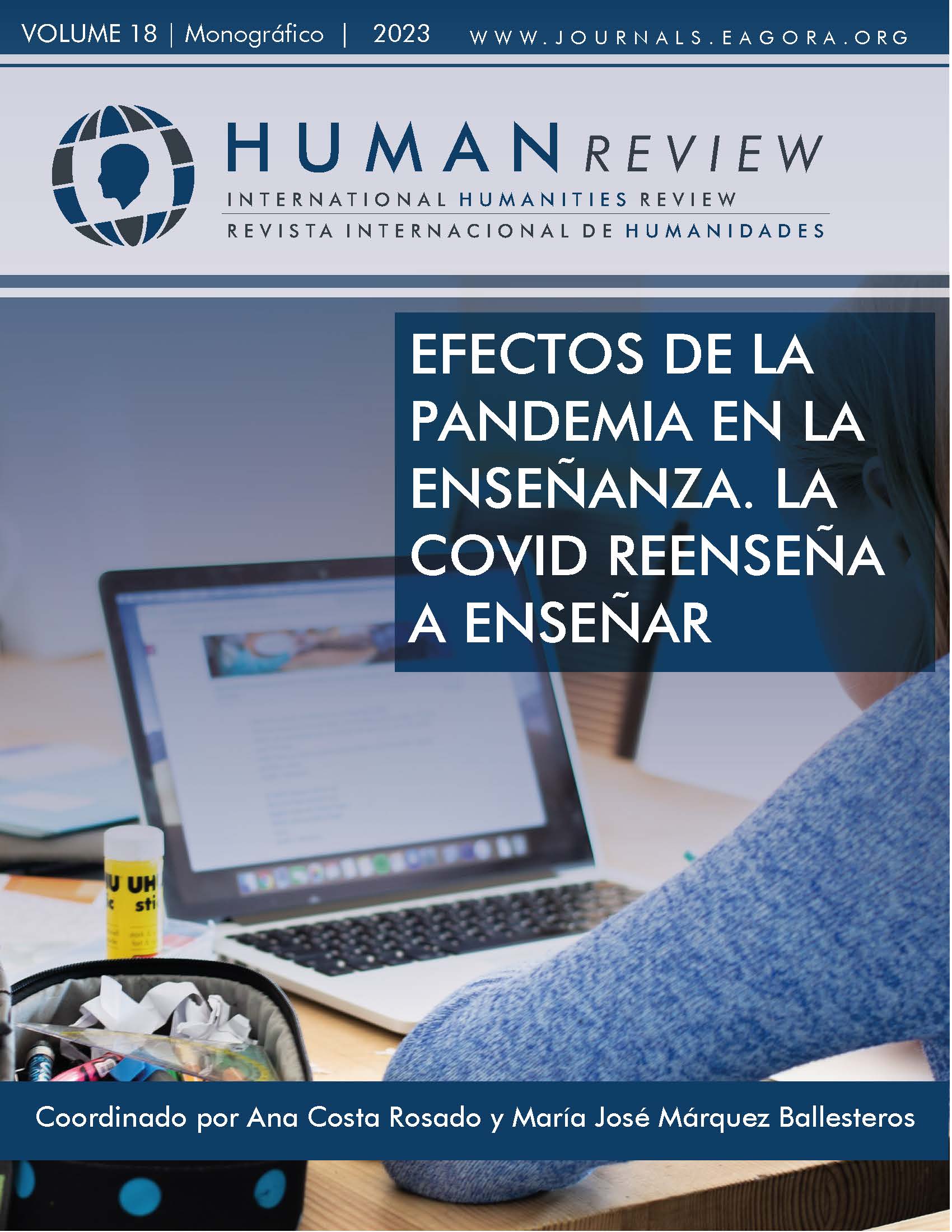How did covid19 affect online postgraduate students? A case study
Keywords:
COVID-19 pandemic, Online master, Active teachers, Technological platform, Emotional conflicts, Institutional pressureAbstract
We present 2 cases of active mathematics teachers, meanwhile study in an online and asynchronous master’s program in Educational Mathematics, and the complications they experienced with the closure of the schools where they teach due to the COVID-19 pandemic. The shift from face-to-face classes to online classes required them to learn new tools and develop new skills, forcing them to spend more time preparing for their classes and less time on their master’s studies. The result was that instead of graduating in 4 or 5 semesters, students took 6 or 7 semesters to complete their research and write their thesis.
References
Aristovnik, A., Kerzic, D., Ravselj, D., Tomazevic, N., & Umek,L. (2020). Impacts of the COVID-19 Pandemic on Life of Higher Education Students: A Global Perspective. Sustainability, 12(20). https://doi.org/10.3390/su12208438
Banco Internacional de Reconstrucción y Fomento (2021). El estado de la crisis educativa mundial: un camino hacia la recuperación. Autor. https://documents.worldbank.org/en/publication/documents-reports/documentdetail/402111638769366449/executive-summary
Barlow, R. (2021, December 14). Homeschooling Up, Public Schooling Down during COVID-19, BU-Aided Research Finds. BU Today. https://www.bu.edu/articles/2021/homeschooling-rising-public-school-down-during-covid-19/
Del-Moral-Pérez, M. E., Bellver-Moreno, M. del C., Guzman-Duque, A. y López-Bouzas, N. (2021). Concienciación juvenil frente al COVID-19 en España y Latinoamérica: análisis de spots en YouTube. Revista Latina De Comunicación Social, 79, 23-49. https://doi.org/10.4185/RLCS-2021-1510
Dimopoulos, K, Koutsampelas, C., & Tsatsaroni, A. (2021). Home schooling through online teaching in the era of COVID-19: Exploring the role of home-related factors that deepen educational inequalities across European societies. European Educational Research Journal, 20(4), 479-497. https://doi.org/10.1177/14749041211023331
Dorn, E., Hancock, B., Sarakatsannis, J., & Viruleg, E. (2021). COVID-19 and education: The lingering effects of unfinished learning. McKinsey & Company. https://www.mckinsey.com/industries/education/our-insights/covid-19-and-education-the-lingering-effects-of-unfinished-learning
Economic Commission for Latin America and the Caribbean & Regional Bureau for Education in Latin America and the Caribbean of the United Nations Educational, Scientific and Cultural Organization. (2020). COVID-19 Report ECLAC-UNESCO. Education in time of COVID-19. Organización de las Naciones Unidas.
Eggleston, C., & Fields, J. (2021, March 22). Homeschooling on the Rise During COVID-19 Pandemic. Webpage of United States Census Bureau. https://www.census.gov/library/stories/2021/03/homeschooling-on-the-rise-during-covid-19-pandemic.html
Escudero, J., Delfín, L. A., & Gutiérrez, L. (2008). El estudio de caso como estrategia de investigación en las ciencias sociales. Ciencia Administrativa, 1, 7-10. https://www.uv.mx/iiesca/difusion/revista-nueva/
Fontenelle-Tereshchuk, D. (2021). ‘Homeschooling’ and the COVID-19 Crisis: The Insights of Parents on Curriculum and Remote Learning. Interchange, 52(2), 167-191. https://doi.org/10.1007/s10780-021-09420-w
Hardgreaves, A. (2021). What the COVID-19 pandemic has taught us about teachers and teaching. Science Applications Forum, 6. https://doi.org/10.1139/facets-2021-0084
Hoofman, J., & Secord, E. (2021). The Effect of COVID-19 on Education. Pediatric Clinics, 68(5), 1071-1079. https://doi.org/10.1016/j.pcl.2021.05.009
Johnson, R.Z. (2021). Homeschooling during covid-19: a case study [Master Thesis, Northern Michigan University]. https://commons.nmu.edu/theses/671
Karakose, T. (2021). The impact of the COVID-19 epidemic on higher education: Opportunities and implications for policy and practice. Educational Process: International Journal, 10(1), 7-12. http://dx.doi.org/10.22521/edupij.2021.101.1
Martínez Carazo, P. C. (2006). El método de estudio de caso: estrategia metodológica de la investigación científica. Pensamiento & Gestión, 20, 165-193. https://www.redalyc.org/articulo.oa?id=64602005
Meinck, S., Fraillon, J., & Strietholt, R. (2022). The impact of the COVID-19 pandemic on education. International evidence from the responses to educational disruption survey (REDS). United Nations Educational, Scientific and Cultural Organization. https://unesdoc.unesco.org/ark:/48223/pf0000380398
Monroy-Gómez-Franco, L., Vélez-Grajales, R., & López-Calva, L.F. (2022). The potential effects of the COVID-19 pandemic on learning. International Journal of Educational Development, 91, 1-14. https://doi.org/10.1016/j.ijedudev.2022.102581
Muftahu, M. (2020). Higher Education and Covid-19 Pandemic: Matters Arising and the Challenges of Sustaining Academic Programs in Developing African Universities. International Journal of Educational Research Review, 5(4), 417-423. https://doi.org/10.24331/ijere.776470
Pokhrel, S., & Chhetri, R. (2021). A Literature Review on Impact of COVID-19 Pandemic on Teaching and Learning. Higher Education for the Future, 8(1), 133-141. https://doi.org/10.1177/2347631120983481
Tejedor, S., Cervi, L., Tusa, F., & Parola, A. (2020). Educación en tiempos de pandemia: reflexiones de alumnos y profesores sobre la enseñanza virtual universitaria en España, Italia y Ecuador. Revista Latina de Comunicación Social, 78, 1-21. www.doi.org/10.4185/RLCS-2020-1466
Yacuzzi, E. (2005). El estudio de caso como metodología de investigación: teoría, mecanismos causales, validación. No 296, CEMA Working Papers: Serie Documentos de Trabajo. https://www.ucema.edu.ar/publicaciones/download/documentos/296.pdf
Zhao, Y., & Watterston. J. (2021). The changes we need: Education post COVID‐19. Journal of Educational Change, 22, 3–12. https://doi.org/10.1007/s10833-021-09417-3
Downloads
Published
Issue
Section
License
All articles are published under an Attribution-NoDerivatives 4.0 International (CC BY-ND 4.0) license. Authors retain copyright over their work.

